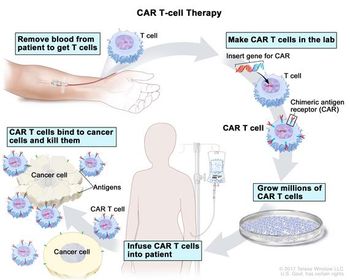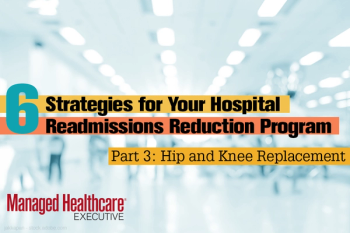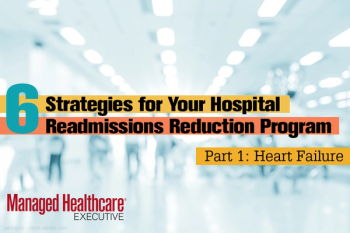
Pacific Research Institute’s Winegarden Sees Dose of Competition as Way to Lower OOP Costs
Keith Loria is a contributing writer to Medical Economics.

Pacific Research Institute’s Winegarden Sees Dose of Competition as Way to Lower OOP Costs

Cardinal Health recently conducted a survey of more than 100 rheumatologists asking their feelings about biosimilars, and the findings revealed that the majority of them were familiar with and comfortable prescribing biosimilars.

The veteran healthcare executive says this may be a Netflix vs. Blockbuster moment for hospitals. And health plans may be under pressure to meet the statutory levels for medical spending and recontract with their networks to offer enhanced payments in return for clinical improvement activities.

An off-the-shelf version of CAR-T therapy that uses the immune system’s natural killer cells is a possibility. But the high price of CAR-T shows some doubts about how widely it can be used.

Some hospitals were overwhelmed. But for many providers, COVID-19 has meant the absence of patients - and major drops in revenue. And now there is a possible economic downturn. COVID-19 has hit American healthcare and hit it hard.

Proving therapeutic equivalence is a major hurdle.

Developing a biosimilar can be more challenging than developing the innovator product because of the need to match the attributes of a highly complex molecules.

He was reluctant to take the CEO job, but VanTrieste has the unique nonprofit drug manufacturer surpassing its goals and possibly branching out into the retail market.

The purpose of biosimilar is simple: reduce healthcare costs, pure and simple. Here are 11 trends affecting biosimilars over the last year in the U.S.

Just as we’ve seen the entire healthcare landscape change in 2020 because of COVID-19, the world of biosimilars is ever-changing.

Residents and staff have been hit hard by the disease. PPE is in short supply. The deaths are taking an emotional toll on largely unheralded workers.


How are healthcare systems addressing the shift from inpatient to observation?

How to appeal to people of any age.

Healthcare executives and consultants told us which strategic trends to look out for - before COVID-19.

As president and CEO of Cancer Treatment Centers of America, Pat A. Basu, MD, MBA, looks to transform, improve, and influence cancer care on a large scale.

Medicare Advantage plans are now covering more benefits than they have in the past for those facing social determinants of health in their daily lifestyles.

Former journalist Ceci Connolly, president and CEO of the Alliance of Community Health Plans, is making positive news in healthcare.

A look at the president and CEO's experience in becoming an influential reason for Intermountain Healthcare's success.

Health executives weigh in on what success will mean to them in 2020.

A look at what will impact the managed care industry next year.

A look at the implications for Medicaid plans.

Encouraging weight loss, smoking cessation, and management of diabetes prior to surgery can help avoid post-operative problems.

Looking ahead, here are the things most likely to impact managed care.

An innovative effort to address nonmedical drivers of health.

The ultimate guidebook on everything you need to know about reducing hospital readmissions-the most common risk factors, the reimbursement issues, and how real-world hospitals are solving the problem.

The ultimate guidebook on everything you need to know about reducing hospital readmissions-the most common risk factors, the reimbursement issues, and how real-world hospitals are solving the problem.

Although he dreamed of becoming an architect, John Baackes now has designs on creating a better future for managed care.

How healthcare leadership is changing due to market trends, and the new skills healthcare executives need to thrive.

A look at what payers are-or should be-focusing on in terms of their strategy for getting customers.